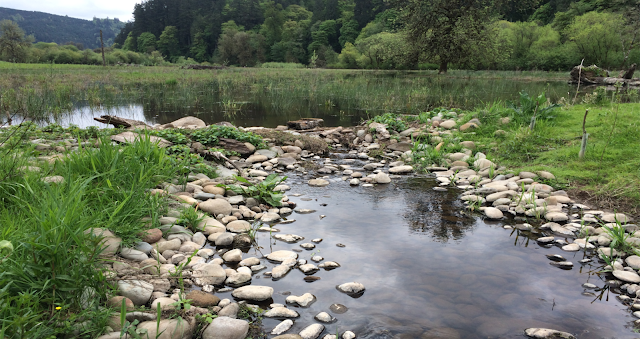We are gravely concerned the draft rule, proposed jointly by EPA and U.S. Army Corps of Engineers, will eliminate federal protection for classes of streams and wetlands highly valued by Washingtonians. In Thurston County alone, we estimate the federal proposal would remove between 2,000 and 11,000 acres of wetlands from federal protection.
The rule change, if finalized, would remove federal protections for:
The rule change, if finalized, would remove federal protections for:
- Streams in upland ditches as well as water in most ditches.
- Wetlands behind dikes with no surface connection to a river, as well as wetlands along irrigation canals.
- Wetlands close to, but not touching, marine waters.
- Streams that only flow in response to rainfall—also called “ephemeral” streams.
- Wetlands in a floodplain that receive floodwaters on a less than annual basis and lack a surface connection to a stream.
- Prior converted croplands, wetlands under agricultural production when they are proposed to be changed to non-agricultural uses.
Healthy streams and wetlands = healthy Washington
These waters help our state maintain a healthy, safe and vibrant economy and environment by:- Providing and supporting important habitat for salmon that southern Puget Sound resident orca need to survive.
- Filtering and cleaning our drinking water.
- Controlling flooding and erosion.
- Offering habitat and refuge for fish and other wildlife.
- Providing places for boating, fishing, and other recreation activities.
Federal proposal too flawed to be adopted
According to the proposed rule language, the federal government is seeking to change the definition of waters of the United States to increase the predictability and consistency when implementing the Clean Water Act and reduce the scope of federally-protected waters.
We find this approach to be significantly flawed because it:
- Would put Washington’s water quality at risk. Federal protection would be rolled back to cover only certain stream reaches instead of the entire water body.
- Creates an artificial divide between state and federal waters, allowing the federal government to shirk its responsibility to protect the physical, chemical, and biological integrity of the nation's waters under the federal Clean Water Act.
- Ignores years of science, upheld by numerous court decisions, that Washington’s surface streams and wetlands are often directly connected to underground sources of water. Surface water pollution puts state drinking water aquifers at risk.
- Creates a need for a new state permitting program. Public and private developers seeking to build projects that would impact certain classes of wetlands now file a single state/federal application. We currently apply state requirements as part of the federal permitting process. Without federal involvement, the state would need legislation to create and fund its own wetland permitting process. Without such a program, projects could experience delays and economic losses.
Washingtonians expect their waters to be protected
Time and again, Washingtonians have been clear about the importance of protecting, restoring, and conserving state waters and wetlands. They demand safe drinking water, expect healthy places for recreation, and support a vibrant natural resource economy supported by clean water.Our state laws reflect this mandate:
- Water Pollution Control Act, passed by the state legislature in 1945, outlines the state’s interest in controlling pollution and protecting water quality in all state waters and wetlands.
- Shoreline Management Act, passed by voter referendum in 1972, protects and manages development along the state’s 28,000 miles of stream, river, lake, and marine shorelines.
- Growth Management Act, passed by lawmakers in 1990. Under the act, local governments protect all wetlands and streams by adopting critical areas ordinances.
Rule would negatively reshape relationship with federal partners
 |
| Chehalis River swamps Centralia and Chehalis during 2007 catastrophic flood. |
- Significantly reshape the working relationship we have with the U.S. Army Corps of Engineers and EPA to help protect our waters.
- Sow confusion among local communities seeking help from our federal partners.
- Mean more work for communities and state agency partners like us.
- Result in accidental violations of local and state laws.
By Curt Hart, Ecology communications



No comments:
Post a Comment